Melanie Corona
"My tagline in life is that you have to make each day count. I believe in a greater power, but you are in control. You don’t have to sit back and let things happen to you."
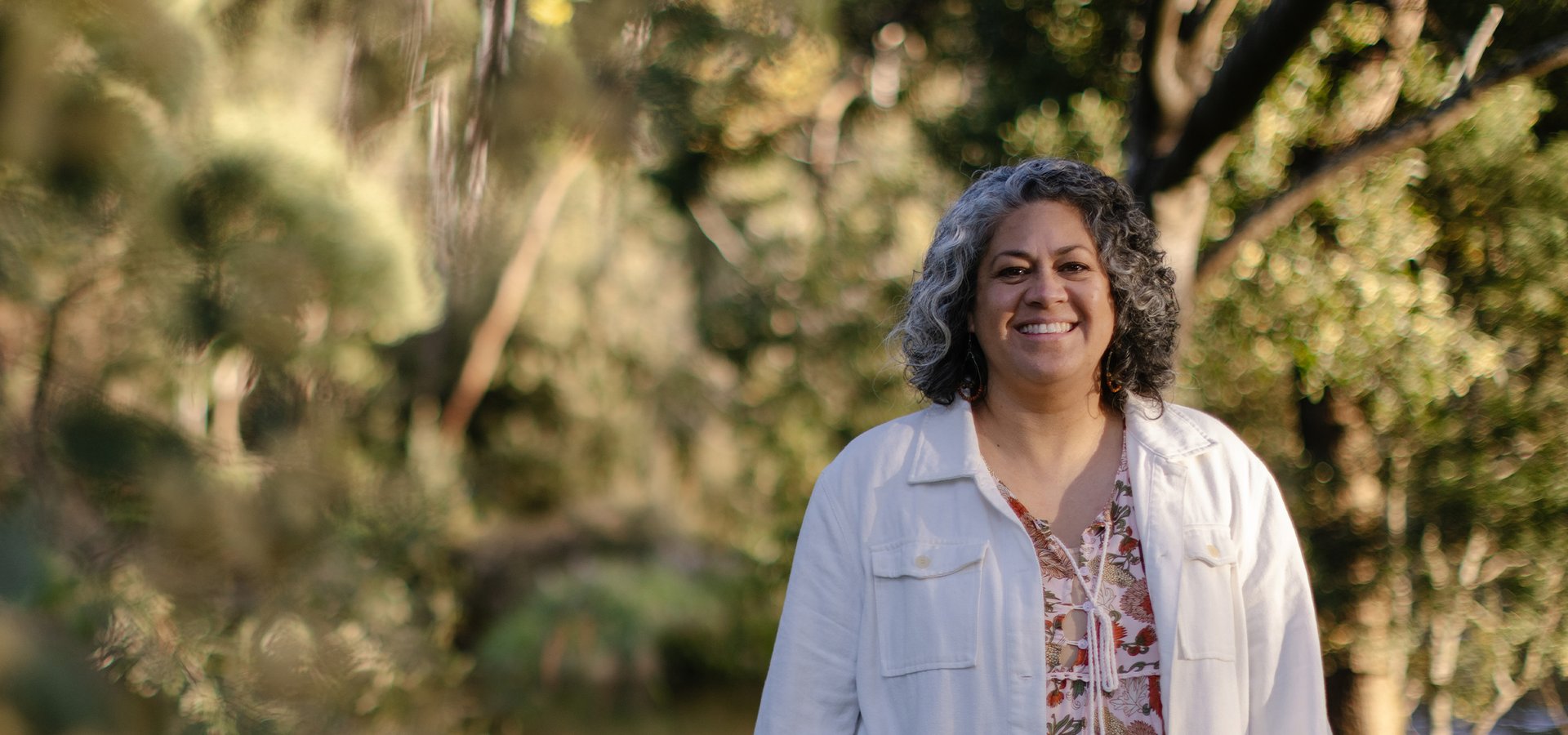
"Even though I wasn’t raised in Culture, a lot of the things I do in my life reflect it. When I go to a smoking ceremony, I believe I’m participating in something much bigger than me."
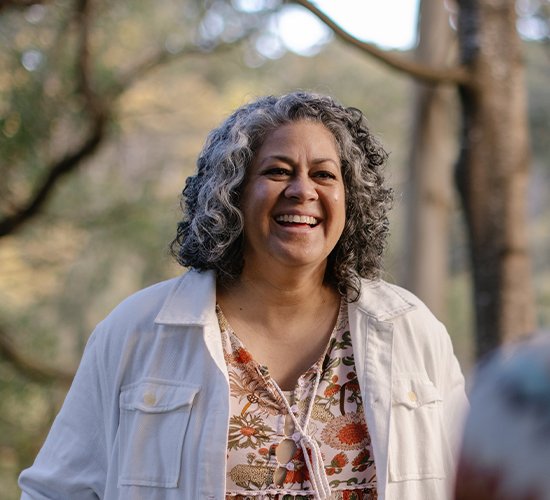
Melanie Corona is here because she chose to be.
She’s been awake since the early morning, a habit she sticks to no matter what. “I wake up early to be ready for myself and my children, so I can be present for them when they need me,” she explains. It’s already been a big day, filled with work and family life. By the time Melanie sits down to share her story, a range of emotions and events have flowed through her household and her day, as anyone with children in their lives has experienced. Many people would have cancelled. Not Melanie. “Imagine having one chance to speak together in this library,” she says. “Are you making the most of it? Because I am. I will give you my attention because it matters. You matter. Your time matters because we’re never going to get it back.”
Melanie’s story begins years before this day in the library. It begins long before she was born. “I believe I will see not just this life, but before and after. I make choices based on my belief that I have one chance to live on this earth, in this body, but that what I do in this life matters after.” For Melanie, each moment is one of profound meaning and intention. “My tagline in life is that you have to make each day count. I believe in a greater power, but you are in control. You don’t have to sit back and let things happen to you.”
In the early hours of Christmas Day 1974, Cyclone Tracy made landfall in Darwin. Melanie’s dad was in the Australian Army, assigned to the disaster relief effort. It was there he met Melanie’s mum on a community service project. They married and moved to Alice Springs. “Tasmania was too cold for Mum and Darwin was too hot for Dad, so they chose Alice Springs because it’s desert. When the sun goes down, so does the temperature,” Melanie laughs.
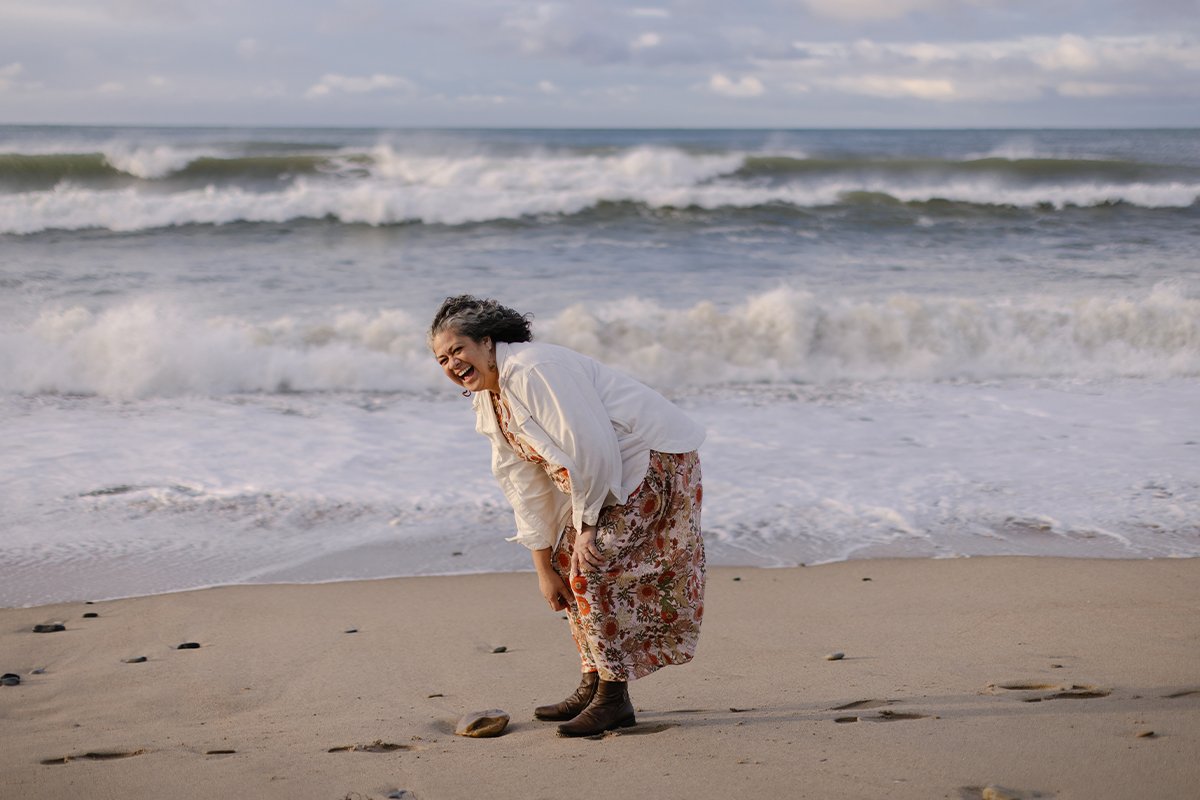
Even though I wasn’t raised in Culture, a lot of the things I do in my life reflect it. When I go to a smoking ceremony, I believe I’m participating in something much bigger than me.
Melanie has a strong sense of how her parents’ influence shaped her. Her dad, an insurance broker, taught her to be organised and logical. Her mother taught her spirituality. “When she was a baby, my mum’s mum was sent away from the Islands,” Melanie explains. Although she was ultimately returned to her own grandparents in the Torres Strait, reconnecting with family was hard. She eventually moved to Darwin with her husband and children. Once they moved to Alice Springs, Melanie’s parents lived even further from the Islands, but her mum’s connection to them was still alive within her. “Even though I wasn’t raised in Culture, a lot of the things I do in my life reflect it,” Melanie says. “You’re raised doing it and you don’t even think about it. When I go to a smoking ceremony, I believe I’m participating in something much bigger than me. My connection to Country is real.”
When Melanie was a teenager, she left Alice Springs for boarding school in New Zealand, graduating and then moving to the Gold Coast. She became pregnant at age 19. “I try to instil in my children a comfort in themselves, the ability to do things on their own and for themselves,” she says. “When I was in that relationship, I knew it was wrong. I was like, ‘No, I’m not doing this. This isn’t how it’s supposed to be, so how do I get out of it?’ Already having a child made it harder to leave, but I did.”
Melanie backpacked parts of Australia, often with her oldest child in tow, and travelled to North America. She worked in tourism, taking people camping throughout Central Australia. She met her husband when he was travelling around Australia. They married and had two more children. “Tasmania, for me, was this elusive place,” Melanie recalls. “Growing up, it was a place to come visit my grandmother.” And then her parents retired here. “My husband said, ‘Your parents moved to Tasmania; we can too.’” They had two more children here. “And we just lived our lives,” Melanie says. “I was a stay-at-home mum, because I wanted to be present. We were a young family, living on one income. A lot was dictated by money, circumstances, location. That’s the same for everybody.” They moved from Deloraine to Wynyard, finally settling in Burnie. They never left.

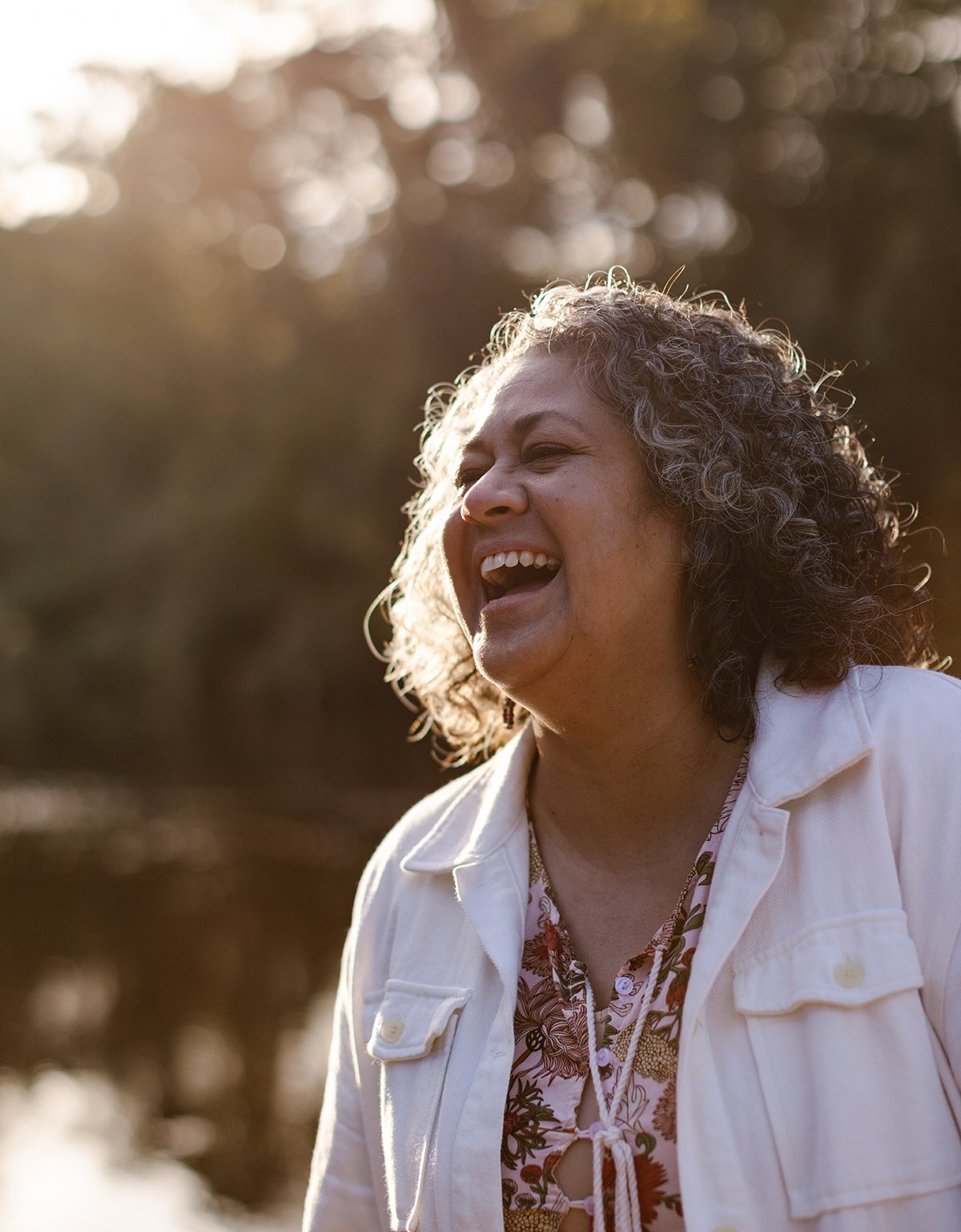
“Everyone has a huge life,” Melanie insists. “If you wake up, change nappies, make breakfast, do this and that, cook dinner, go to bed, then wake up and do it all again – there is something beautiful in that day. It’s about how you see yourself, because you matter, and so does the story you tell yourself.” Melanie is never idle, and she is especially passionate about creativity. She loves to garden. She loves to cook Mexican-American food, taught to her by her husband’s mum. She loves sewing and ran a small bag business while her kids were young. And she loves to write, authoring several novels. “I always wanted to write,” she reflects. “I love the intensity of the early settler era when it comes to romance.” And then, she stopped.
Melanie received many gifts from her parents: the gift of questioning everything, of speaking up, of belief in something bigger than herself. One gift she’s tried to give to her children is that of honesty. When Melanie was writing, she often felt frustrated when her kids interrupted her. One day her son said to her, “You’re always writing. You’re just always on your computer.” It was a wake-up call about being present with her children, and she took her son seriously. “He knew that if he talked to me like that, I would listen. I gave him that gift. If you’re going to give them the gift of empowering them, you need to be willing to receive it when they give it back to you.”
When Melanie and her husband welcomed a foster daughter into their family, her self-reflection ran even deeper. She went to uni to become qualified in the support sector and began working in Aboriginal Education. Their foster daughter, a Tasmanian Aboriginal child, helped create their first connection with the Tasmanian Aboriginal Centre. They went there for health visits and started connecting with community. “I am a Torres Strait Islander Aboriginal woman. I never used to introduce myself that way.” A work trip to Bruny Island changed her perspective on identity. “I saw this man sitting in the corner, and I introduced myself. We chatted about where I’m from, about how he’d done work in the Torres Strait. And he ended up being Rodney Dillon. He’d actually helped get the Aboriginal Land Title for Murrayfield. He introduced himself and did a Welcome to Country, because it was his Country. He said Tasmanian Aboriginal people welcome people from all over, even as far as the Torres Strait Islands. And he looked at me. He said, ‘We welcome you to Country, and you’re one of us.’ It was the first time I felt like I’m a Torres Strait Islander Aboriginal person, and I live in Tasmania, and that’s okay. That’s my story of feeling comfortable in my own skin.”
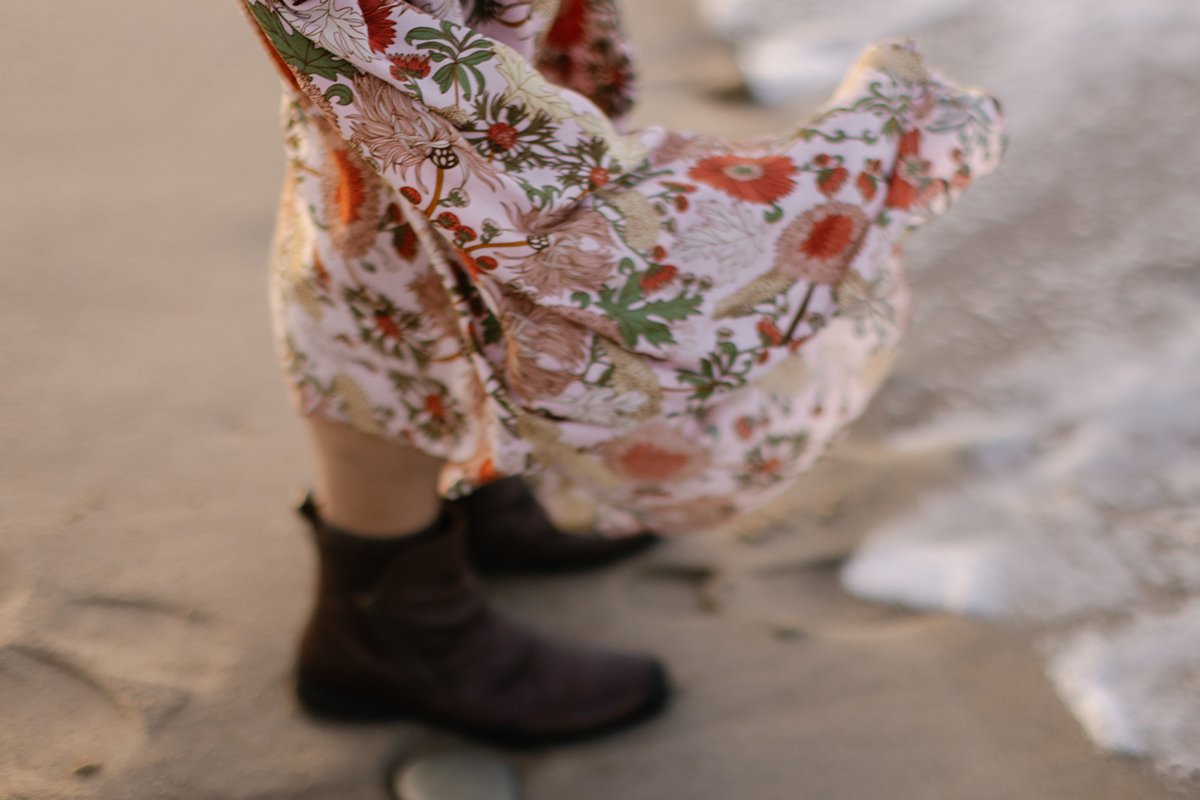
Now, Melanie works with young parents on their own journeys of feeling at home within themselves. “The people I’ve supported, sometimes all they can see is what’s happening to them,” she explains. Melanie draws on her own experience to teach them how much mindset matters – and how much they matter. “What is the right choice by someone else’s standard?” Melanie thinks out loud. “As parents, we so often use someone else’s measuring stick. As a Torres Strait Islander Aboriginal person, I have to close the gap according to someone else’s idea of my health. My health would never be good enough. You just feel so pressured to do things the ‘right’ way.” For Melanie, there are deeper ways to live a good life. “If parents and kids are just told to be good, do they know what good looks like?” Melanie explains how, for someone with experience of trauma, playing the long game can feel impossible. It’s about finding your own definition of “good”. Melanie is guided by her roots in Christian and Indigenous spirituality, but she believes there are many ways to set your moral compass.
Melanie strongly suggests parents follow scientific advice for the first 1,000 days of their children’s lives. She talks about bonding with children through reading, serving them nutritious food, and being as naturally active as you can. She talks about having high expectations of children, to give them the chance to contribute to the household and reach their full potential. “I can be successful in this work because I’ve lived it,” she says.
In 2017, Melanie had a strong feeling she should visit her grandmother in Darwin. So, she went and sat with her, writing down as much as she could about her life. When her grandmother passed away later that year, Melanie was reminded of how her nanna was always visited by birds. “To me, she always mentioned wren birds,” she recalls. “Once, when I called her to say I was pregnant, she said she already knew – she’d dreamt it. My grandmother knew things like this about her family. When my son and daughter-in-law had their daughter, they were going to call her Evangeline or Wren. While they were still in hospital, they were debating names, and a wren landed on the balcony, and she made the sound of a bird. It was so special, they knew, then, that Wren was going to be her name. I believe she was named after my grandma.”
Now, baby Wren rockets around the lounge room. “I like to watch Wren crawl,” Melanie’s son says. “Why’s that?” Melanie asks. “Because one day, it’ll be the last time she crawls.” Not the first time she walks, but the last time she crawls. Melanie smiles. “You’ll never have today – you’ll never have this moment back.”
We worked with north west Tasmanian photographers Moon Cheese Studio for this Tasmanian story.